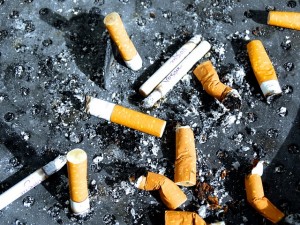EspañolLighting up a cigar while drinking a caipirinha at a bar in Brazil has become an image of the past.

On Wednesday, the prohibition came into force nearly three years after being passed. The legislation bans smoking in enclosed areas open to the public and imposes new restrictions on cigarette advertising.
The Anti-Tobacco Law bans the use of any tobacco products such as cigarettes, cigars, smoking pipes, and water pipes in enclosed areas like building lobbies, restaurants, and nightclubs.
Furthermore, the restrictions even reach the so-called fumódromos, special areas designated for smokers at public places. However, religious temples will be exempt from enforcing the rule if smoking is part of their rituals.
Now, smoking will only be allowed in private homes, or open-air spaces such as parks, the streets, or tobacco shops. The law also imposes restrictions on cigarette advertising, including shops authorized to sell cigarettes.
Cigarettes can only be displayed alongside health warnings that alert observers of the harms caused by smoking. Also, tobacco companies will have to increase the size of the warnings on their packages. The rule provides that 100 percent of the back side and one lateral side of cigarette packs should contain warning messages.
While premises found in breach of the rule could face fines from R$2,000 (US$777) to R$1.5 million (US$583,000) as well as potentially having their license revoked, defiant individuals will not face any penalty.
In recent years, local governments in Rio de Janeiro, Brasilia, and Sao Paulo have enacted similar rules. However, now the ban extends to the whole country. Brazilian states that had their own laws previously will be obliged to comply with the new rules.
Sources: El Cronista, Entorno Inteligente, Folha.
 Versión Español
Versión Español












